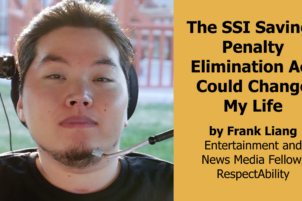Washington, D.C., Oct. 27 – “I woke up in the morning to my wife screaming, ‘Thad, wake up! Thad, wake up!’” said Todd Burke, father of then 22-year-old Thad Burke. The grieving father spoke with a shaky voice through tears to an audience of journalists and advocates live on stage at The Washington Post’s panel on ‘Addiction In America: A Nation Responds’ last week.
Clutched in his hands a tin can of what formerly held protein powder that now held his son’s ashes, Burke shared his story.
Thadeus A. Burke died on Oct. 2, 2016. He was addicted to opioids and overdosed on heroin. He was one of the “estimated 62,000 people who died of a drug overdose in 2016,” according to Lenny Bernstein, a Health and Medicine reporter for The Washington Post.
“I am just going to say it, I never thought it would happen to us,” said Dorie Burke, Thad’s mother. That is what a lot of people from Pennsylvania’s 10th Congressional District thought. In 2016 alone, Pennsylvania coroners reported that more than 4,000 people had died as a result of an overdose – a number which is 30 percent higher than it was the previous year. Thad’s parents are putting a face to this statistic and are calling for action.
In 2016, the Obama administration signed into law The Ensuring Patient Access and Effective Drug Enforcement Act, a law that was designed to ensure that cancer patients, and people in pain could easily obtain the medications necessary to their health – opioid painkillers. However, in a recent documentary entitled The Whistleblower, Redemption published by CBS’s 60 Minutes and The Washington Post, reporters determined that not only does this act make it significantly more difficult for the Drug Enforcement Administration (DEA) to regulate the amount of opioids being produced within the United States but also that the law was passed unanimously by the senate.
On Thursday, President Trump announced that the nation is now in a health emergency due to the opioid epidemic. CNN reported, “An analysis from Blue Cross Blue Shield of its members found that from 2010 to 2016, the number of people diagnosed with an addiction to opioids – including both legal prescription drugs like oxycodone and hydrocodone, as well as illicit drugs – climbed 493 percent.”
Just three days after the special aired on 60 Minutes, The Washington Post invited lawmakers to shake the hands of the Burke family and to discuss the implications of the Act. The panel, “Lawmakers Respond to the Crisis,” included Sen. Maggie Hassan (N.H.), Sen. Joe Manchin III (W. Va.) and Sen. Rob Portman (Ohio).
“We were incensed…it had great resistance from the DEA,” said Manchin of the passing of the 2016 Act.
All three senators on the panel agreed that the opioid misuse epidemic was a nonpartisan issue, and that politicians, pharmaceutical companies and communities had a responsibility to help facilitate recovery for people with substance misuse disorder.
This was what the epidemic orbited around – a disorder – that was met with stigma, just like any other disability. Addiction is a disability that is covered by the Americans with Disabilities Act. However, there is an implicit reason that the epidemic has not been addressed until now, which is that people thought it didn’t merit a conversation. There is a view that substance misuse is something self-inflicted. Lawmakers like Sen. Manchin dispelled that myth – they had tried treating like a crime that merited social and legal stigma, and it did not work.
“If you were addicted, you were a criminal. We did that. We did it for 20-30 years. Nobody got cured,” said Manchin.
Currently, Hassan is working with other lawmakers in order to repeal the act but people are still dying everyday.
“I grabbed my son by the arm and pulled him to the floor and started doing chest compressions,” said Todd Burke. “My wife and I sat downstairs while paramedics worked on him for forty five minutes, and then waited again for the coroner to come.”
“Everybody has a story,” said Dorie Burke. “Whether it affects them directly or it was a nephew, a cousin, a friend.”








